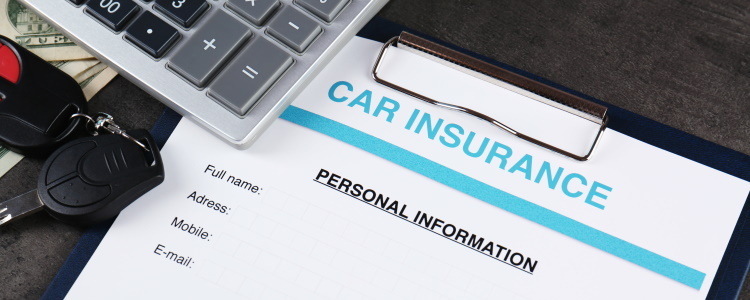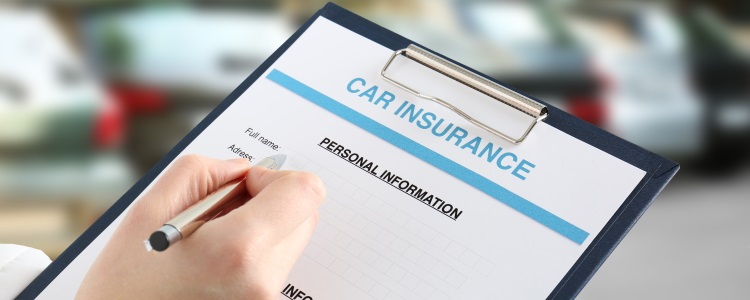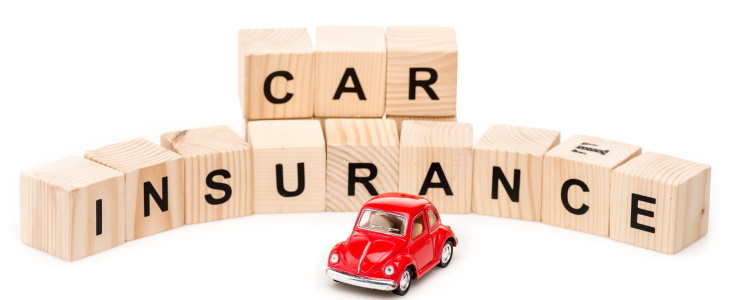Your credit score doesn’t need to be a perfect 850 to get approved for auto insurance. However, having a good credit score can possibly lower the cost you pay each month on premiums.
Auto Insurance and Your Credit Score
 Currently, there are only three states that don’t allow car insurance companies to use your credit score to determine the cost of your policy: Hawaii, California, and Massachusetts. In every other state, your credit score can influence how much you pay each on auto insurance premiums.
Currently, there are only three states that don’t allow car insurance companies to use your credit score to determine the cost of your policy: Hawaii, California, and Massachusetts. In every other state, your credit score can influence how much you pay each on auto insurance premiums.
This is because studies have shown that those with higher credit scores tend to file fewer insurance claims. Some car insurance companies may not consider you for coverage at all if your credit score is too low.
This shouldn't get you down, though. There are many auto insurance companies out there, so if you’ve been denied coverage from one, keep looking. Thanks to the internet, shopping and comparing insurance coverage costs is rather painless nowadays.
Many insurance companies can give you an estimated quote completely online if you enter in information for the vehicle you want coverage on and your personal information. Some insurance companies offer savings to customers who use paperless filings and claims, too!
Lowering Car Insurance Premiums
If you need a lower insurance premium, a good savings tip is financing a used car instead of a brand-new one. Newer vehicles are typically more expensive to insure, since they tend to have pricier parts to replace if something happens.
Additionally, it’s a good idea to shop around for better insurance premiums every year or so. You don’t have to be tied to the same insurance company forever, although some do offer loyalty rewards for staying with them. Be sure to revisit your costs, and compare the savings of loyalties and bundles to switching to another company.
Another way to lower your insurance premiums is by switching to the minimum required coverage, or PLPD. Full coverage auto insurance can be costly. However, you can’t switch to PLPD until your car loan is paid off.
When you finance a vehicle, it’s required that you maintain full coverage until you complete the loan. However, if you own your car outright, you can choose the bare minimum coverage that’s required by your state, which can save you lots of cash each month.
Be advised, though, since PLPD doesn’t usually offer as much protection if something happens. Look into the real costs and risks of switching to a lower level of coverage for your vehicle, and evaluate how much coverage you think you need for your lifestyle and your car.
Along with all of these tips, work on your credit score in the meantime. This is a great way to lower your insurance costs if your state allows your credit history to impact premiums.
Improving Your Credit Score
If your credit score is getting you down and impacting how much you pay for things, work on improving it! It can be easier said than done, but we’ve got a few credit building tips you can follow:
- Pay all your bills on time – it’s the best thing you can do for your credit score.
- Keep your credit card balances below 30% of their spending limits.
- Don’t close out old credit card accounts, and keep them active with regular charges that you pay off each month.
- Have a healthy mix of revolving credit accounts and installment credit accounts.
- Only apply for new credit when you need it.
These are just a few tips to get you on the road to better credit. Installment loans have the ability to create a good, long-standing payment history, which is a great way to boost your credit score.
One of the most common forms of an installment loan is an auto loan. While financed vehicles require full coverage car insurance, auto loans usually last for years, which gives you the ability to prove you’re a responsible borrower who can handle long-term commitments with consistent payments.
Payment history is the most influential factor that makes up your FICO credit score, which is why making sure you stay on top of your finances and loans is of the uppermost importance in credit repair.
A better credit score can mean qualifying for lower insurance premiums, and being considered for lower interest rates on new credit. Essentially, a better credit score can lead to more money in your pocket.
Getting Ready for an Auto Loan?
Shopping for auto insurance is something a lot of borrowers tend to forget about when car shopping. Don’t overlook it, since you’re going to need proof of insurance to drive the vehicle off the lot! However, if you're struggling to find a dealership that can work with your lower credit score, we want to help with that, too.
At Auto Credit Express, we’ve been matching bad credit borrowers to dealers with bad credit lending resources for years. If you want to get connected to a dealership in your area, simply complete our auto loan request form. It’s completely free, secure, and quick – and there’s never an obligation to buy anything. Get started now!
















